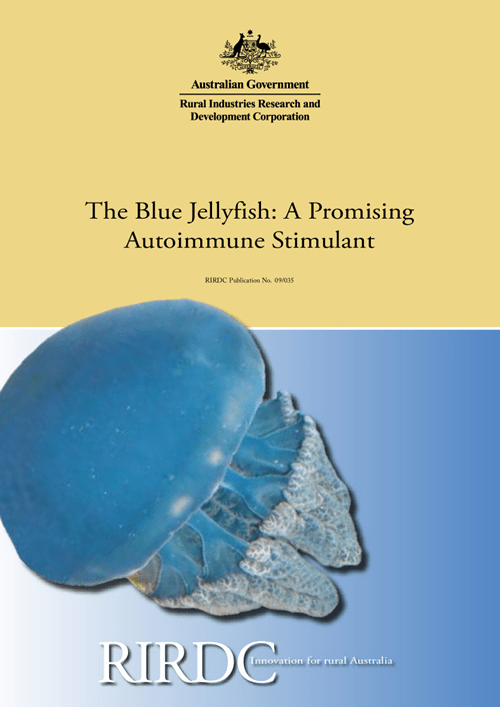Accelerating wattle seed production for the Australian native food industry
The Australian wattle seed (Acacia spp.) industry is poised for significant growth after the establishment of several commercial orchards in recent years. In 2020, about...

46 pages
Published: 8 Jul 2009
Author(s): Rich, B R, Cheras, P A
Download report PDF
DownloadPurchase a hard copy - AUD $45.00
This report presents the results of novel investigations into the properties of the venom from the jellyfish Catostylus mosaicus.
The study has involved three distinct phases:
• Extraction and concentration
• Bioassays of the extract
• Studies of the in vitro effects of the extract on genes within cells of the circulating immune system.
This RIRDC report is targeted at investors or people interested in developing therapeutic products from natural resources. The report provides preliminary findings of an investigation to establish autoimmune properties of the venom under study and provide a foundation for subsequent investigations.
The establishment of a Queensland developmental jellyfish fishery meant for the first time that Catostylus mosaicus (commonly known as the blue jellyfish) could be harvested commercially. This project forms part of the establishment of a new commercial sector targeting dried food products and value added products, such as therapeutic products.
This toxin of C.mosaicus exhibits physiological activity such as hemolysis and autoimmune stimulation by elevation of IgM and IgG serum levels in humans.
For the commercial sector to enhance commercial viability and realise the true potential of the resource, the value added products are viewed as a vital component.
The study set out to determine the handling requirements of C.mosaicus to preserve venom activity and to demonstrate that physiological activity, in particular autoimmune stimulation, was present. It sought to establish a foundation base for further study.